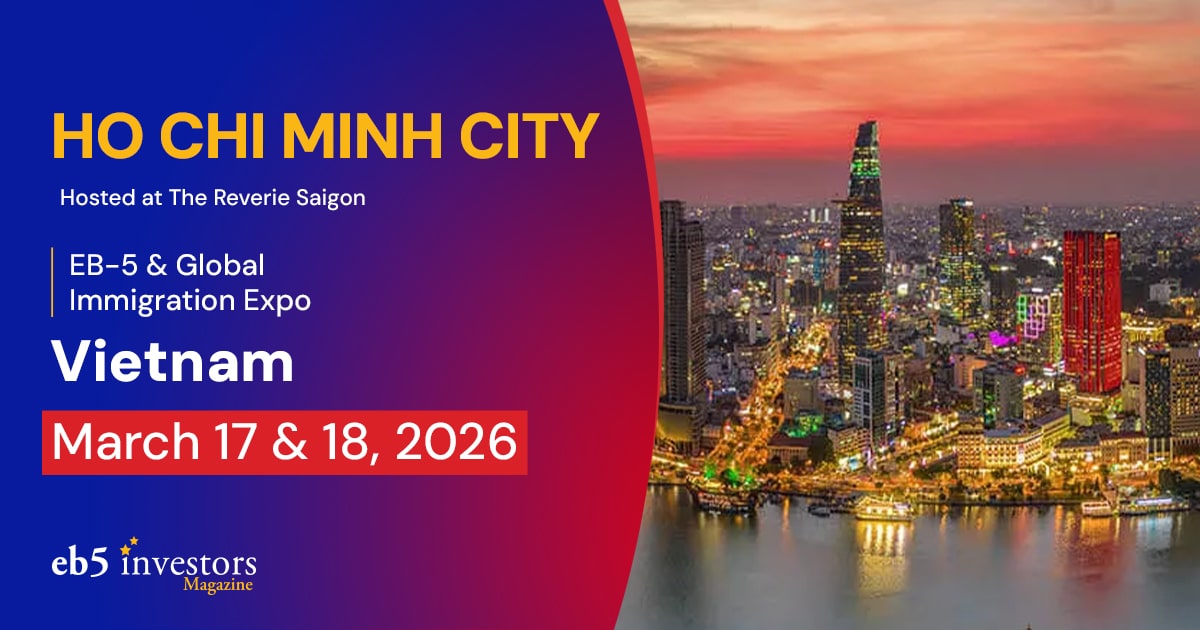By Dillon Colucci
The final stage of the permanent residence immigration process is either an application to adjust status to permanent residence filed with the U.S. Citizenship and Immigration Service (“USCIS”) or an application for an immigrant visa at a U.S. consulate overseas. Some applicants can only apply at a U.S. consulate (such as aliens ineligible to adjust status or because they are outside the United States). Other applicants may have a choice, including those who are currently inside the United States.
Many factors will determine whether Adjustment of Status or Consular Processing is the best option. Many of these factors are client specific. The client will typically weigh some of the factors listed below when making a decision.
With concurrent processing, an adjustment of status may be quicker than consular processing. Some of the advantages of an adjustment of status include no interview in employment-based or EB-5 investor cases, no international travel requirements, police certificates from foreign countries are not required, employment based applicants can take advantage of portability, employment authorization is permitted during the pendency of the adjustment, better procedures for appealing a denied adjustment of status application and the applicant may remain in the United States during the pendency of the adjustment application and keep working.
These advantages to filing an adjustment of status petition do not exist for those seeking consular processing. However, consular processing does have some advantages over filing an adjustment of status. Consular processing is available for individuals who are not in the United States. Additionally, consular processing applicants are not subject to the same travel restrictions as adjustment of status applicants. Further, an applicant for adjustment of status must maintain lawful status during the pendency of their application. For those individuals who cannot maintain lawful status in the United States, consular processing may be the only option. Lastly, if the family of the primary adjustment of status applicant is outside of the United States, it may be advantageous for the entire family to process their immigrant visa applications together at a U.S. Consulate.
An adjustment of status is typically the preferred method. However, it is important for a client to weigh their needs, their current status in or outside the U.S., the location of any applicants seeking to adjust with them, their financial situation, their employment situation and any other factors germane to their situation.
| Adjustment of Status to Permanent Residence | |
| Strengths | Weaknesses |
| Adjustment of status may be quicker than consular immigrant visa processing. | Upon the filing of an adjustment of status application, the foreign national may have restrictions on travel outside of the United States. |
| If a child is near age 21, adjustment of status (especially concurrent processing) may protect the child better. | An applicant for adjustment of status may need to maintain valid status during the pendency of the adjustment of status application. |
| In employment-based or EB-5 investor case, there is usually no interview. However, there is always an interview when choosing consular processing. | If the family (spouse and children) of the foreign national are outside of the United States, the entire family will be unable to adjust together |
| Consular processing may require travel by the principal applicant and family members to the U.S. consulate in the country of nationality or last residence. Adjustment of status does not require any international travel. | — |
| Attorneys can be present if an interview does occur on an adjustment of status application at the USCIS. At many U.S. consulates clients do not have the right to representation during the consular interview. | — |
| Police certificates from all countries where the foreign national lived for six months or more since age 16 are required in consular processing. They are not required when filing an adjustment of status. | — |
| During the pendency of an adjustment of status petition, applicants enjoy benefits including being allowed to obtain employment authorization and portability between employers for the primary applicant in an employment-based petition | — |
| There are procedures for appealing or renewing a denied application for adjustment of status. | — |
| If there are USCIS delays in deciding an adjustment application, the foreign national is able to remain in the United States and continue working. | — |
| If there are delays in the consular processing of an immigrant visa application following the interview, the foreign national may be stranded outside the United States until the problems are resolved. | — |
| Advantages of Consular Immigrant Visa Processing | |
| Strengths | Weaknesses |
| Upon the filing of an adjustment of status application, the foreign national may have restrictions on travel outside of the United States. | Attorneys can be present if an interview does occur on an adjustment of status application at the USCIS. At many U.S. consulates clients do not have the right to representation during the consular interview. |
| An applicant for adjustment of status may need to maintain valid status during the pendency of the adjustment of status application. | Police certificates from all countries where the foreign national lived for six months or more since age 16 are required in consular processing. They are not required when filing an adjustment of status. |
| If the family (spouse and children) of the foreign national are outside of the United States, the entire family will be unable to adjust together | During the pendency of an adjustment of status petition, applicants enjoy benefits including being allowed to obtain employment authorization and portability between employers for the primary applicant in an employment-based petition |
| Consular processing may require travel by the principal applicant and family members to the U.S. consulate in the country of nationality or last residence. Adjustment of status does not require any international travel. | There are procedures for appealing or renewing a denied application for adjustment of status. |
| — | If there are USCIS delays in deciding an adjustment application, the foreign national is able to remain in the United States and continue working. |
| — | In employment-based or EB-5 investor case, there is usually no interview. However, there is always an interview when choosing consular processing. |
| — | If there are delays in the consular processing of an immigrant visa application following the interview, the foreign national may be stranded outside the United States until the problems are resolved. |
DISCLAIMER: The views expressed in this article are solely the views of the author and do not necessarily represent the views of the publisher, its employees. or its affiliates. The information found on this website is intended to be general information; it is not legal or financial advice. Specific legal or financial advice can only be given by a licensed professional with full knowledge of all the facts and circumstances of your particular situation. You should seek consultation with legal, immigration, and financial experts prior to participating in the EB-5 program Posting a question on this website does not create an attorney-client relationship. All questions you post will be available to the public; do not include confidential information in your question.








